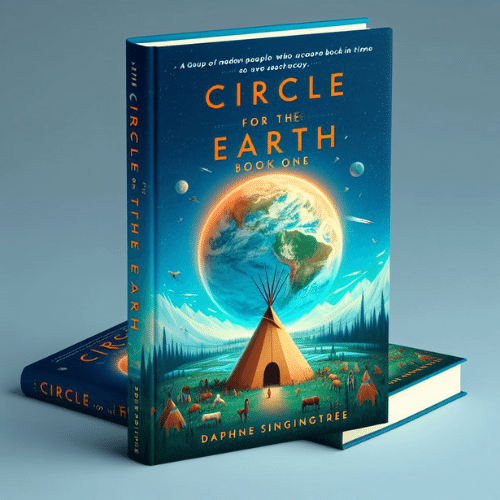
As a lifelong avid reader, I've always been a bit addicted to books, often choosing to read instead of gardening or working. I read five to seven average-sized books a week. Mostly science fiction, with occasionally historical fiction and popular bestsellers. However, my favorite genre is stories about modern people going back in time and changing history, like the Eric Flint 1632 series. It was so popular that after his death, fans carried on writing in the universe he created.
Despite my love for reading, I never thought I could write a novel. I've never taken a writing class, and I struggle with terrible typing skills, ADHD, and grammar issues. The idea of writing fiction seemed like an insurmountable hurdle.
The idea for my novel came unexpectedly. I had been struggling to update my midwifery books and complete my latest work, 'Eagletree Herbs Guide to Medicine Making,' It was close to being finished, but I paid a professional editor, who ended up ripping me off and discouraged me so much I have not finished it. It will need to wait until the novel is done.
Frustrated, I set these projects aside when, after Thanksgiving last year, an idea for a book took hold of me and wouldn't let go. For two days, I did nothing but sit and think about the book. I began writing on December 1st with no outline or plan, simply writing my vision. I finished the first draft in seven weeks, on January 15th. Writing the novel was the first truly creative thing I ever did. My goal was to finish a rough draft to give to family and friends as Christmas gifts, though looking back, I'm not sure why I thought they would enjoy my poorly written draft. It was not a book, more like a book-shaped blob.
After several rounds of beta reading and professional editing, it is taking shape. The first draft was too long, at 165,000 words, or 475 pages. Through further editing, I've trimmed it down to 141,000 words, and I expect further reductions in the final version.
In 'Circle for the Earth,' the Earth provides humanity with a second chance by sending a South Dakota Indian casino and the surrounding thirty miles back to the year 1791, before the Louisiana Purchase. To rewrite history and forge a sustainable future, the displaced Lakota people and the local populace must band together. They create a new government, and work to replicate technology, all while adapting to life in the eighteenth century. How can they respond when threats come from both within and without? Can they achieve their goals while listening to the wisdom of the earth and avoiding the mistakes of the past?
Speculative fiction allows us to imagine how we would change the world if we had enough money, power, or magic to do it. This novel has been an exhilarating experience for me, as it is more political and spiritual than others in its genre. Weirdly, accuracy is important to me in fiction, and I've extensively researched the reservations and towns where the story takes place. Almost everything in the novel is based on actual locations and events. I've included a page at the back of the book with links and a bibliography to provide further information. I thought writing and editing the book was a lot of work, but marketing a self-published book is even more time-consuming and challenging. I'm grateful for the wonderful support I've received online and from my friends and family. It's a new adventure, and at my age, adventure is important.
